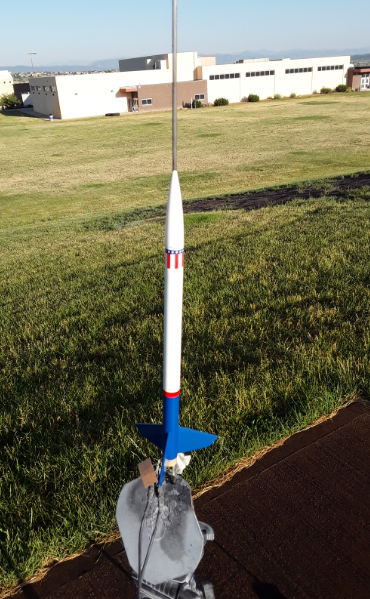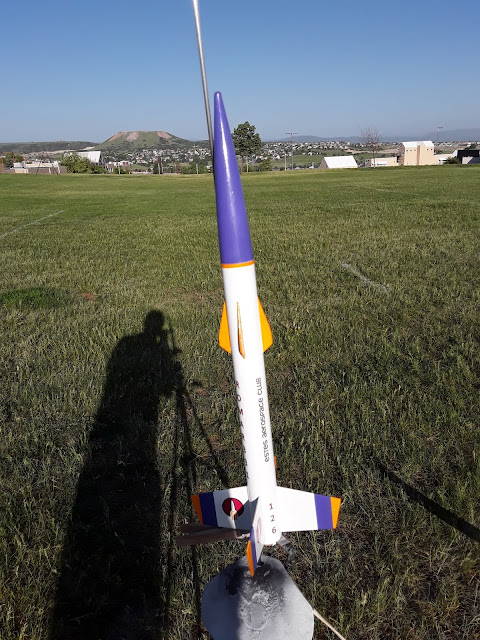For the past couple of weeks, the BlastFromThePast blog has been focused on the numerous launch sessions being conducted recently.
Today is different. Today is not the same.
This morning it is raining outside - the result of a cold front that moved into the Colorado front range overnight.
So, no rocket launches this morning. But I'm not complaining - this is much needed moisture that the lawn and gardens are loving about now.
So, instead, today's post is all about other goings-on in the BFTP shop.
Most of my rocketry time has been spent in prepping models for flight, and putting together the blog posts about their subsequent flights.
Little building has taken place lately, but here is the rundown:
I finally got the fin repaired on the Skeeter Eeter. The gluing and gap filling is completed and I am only waiting on getting outside for primer and paint application. Oops...just noticed that there is a ding on the leading edge of another fin....
Work is in progress on an Estes Interceptor. All the fins are glued on and ready for CWF. The fin pods and antennae are just dry fitted right now. These parts will be finished and painted separately prior to attaching them to the model. Even 'nekkid', this is still a really cool model rocket design.
Work is still in progress on the Protostar. I'm at the fine detailing stage, i.e. modeling all the little Victorian-style 'steam-punkery' embellishments. No pictures yet on this one. I'm waiting to get the build finished, after which I will be bombarding this blog with the remainder of the long- running build 'thread'.
On another note, Father's Day was good for me. My kiddoes pitched in and bought me this interesting device:
This garden wagon is my new transport tote for getting rockets and launch gear between the parking lot and launch area at the regional and local parks in which I fly. This was inspired by friend and fellow rocketeer Jim Gazur, who began using such a device a couple of years ago.
My wife attended one of our launches back in early 2020 and saw Jim using his transport vehicle, and noticed how much I was struggling with juggling and carrying my range boxes, model tote, and launchers onto the field, sometimes having to make two trips. She floated the idea for this wagon to my daughters, and here it is! I'm looking forward to using it.
Lastly, I looked through my rocket motor inventory and noticed how alarmingly depleted it had become. So I sat down the other night and put in an order to AC Supply. I was sorely tempted to pick up a couple of the newest Estes kit offerings, but I refrained. I have over a dozen kits already in my build box, and at the rate I build rockets, I'm good for at least a couple of years with what I already have.
I shouldn't say that I totally refrained: Part of the order was for some body tubes and nose cone assortment packs. I've got a lot of custom builds, glider models, payload bays, booster stages, and old fleet clones on the build agenda that will require more parts than what I have in stock.
So, anyway, there is the run-down of what's happening in my little corner of the model rocketry world.
I'm looking at the weather forecast for tomorrow morning. Looks like I'd better get down to the shop and start preppin'.
Cheers!


























